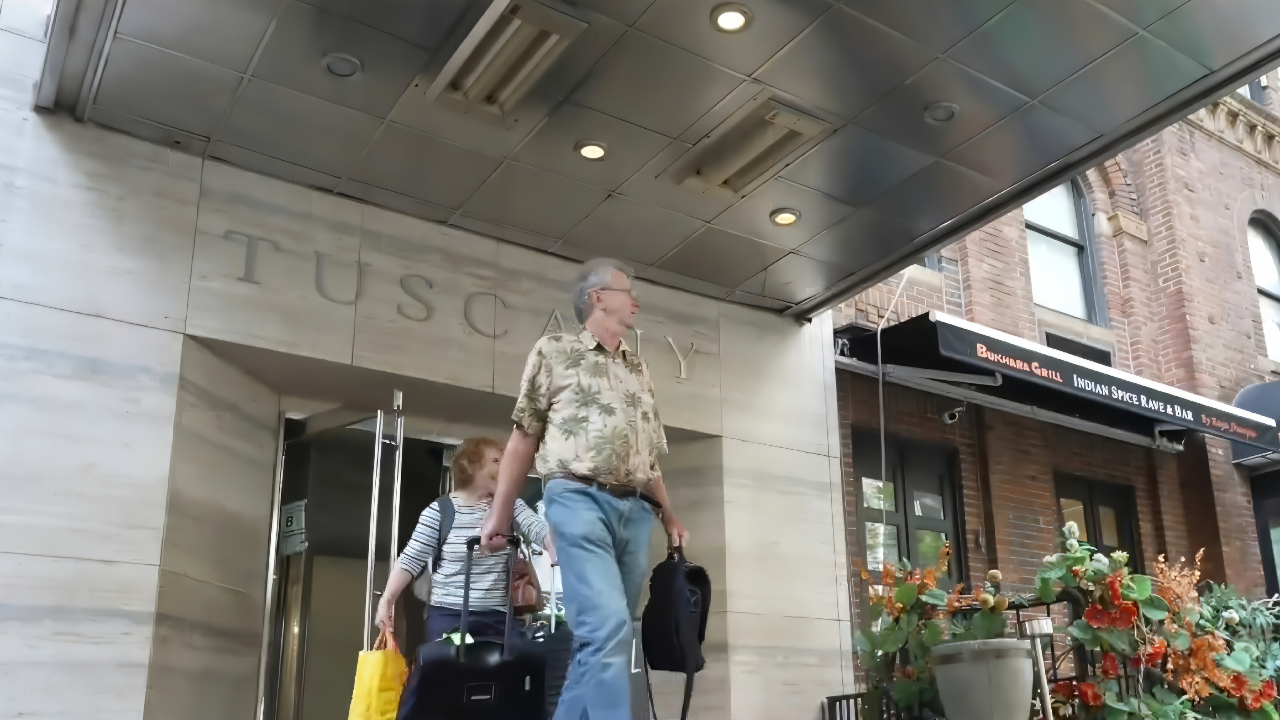
On a September weekend in 2025, travelers stepping into three Manhattan hotels—the Herald, Hotel 27, and Hotel 46—found themselves stranded outside locked doors. Their prepaid bookings had vanished, their rooms shuttered. Within days, the Department of Justice (DOJ) intervened, calling LuxUrban Hotels’ disappearance a potential threat to public safety and financial order. By October, federal attorneys had moved to seize control of its chaotic bankruptcy.
The collapse of a company that once marketed itself as the next big disruptor in urban lodging blindsided guests, employees, and investors alike. It also raised profound questions about accountability in America’s hospitality industry.
From Fast Growth to Freefall

Just a year earlier, LuxUrban’s rapid rise was making headlines. By early 2024, it controlled more than 2,000 rooms across 18 properties and had announced plans to expand sixfold. Investors embraced the vision of a tech-driven, asset-light hotel operator.
But behind the optimism, debt piled up quickly. According to filings reported by Bisnow, the company faced more than $15 million in secured loans and another $22 million in unsecured claims. Landlords sued for unpaid rent; suppliers stopped delivering goods. Still, management pushed forward with new openings and marketing campaigns even as cash dried up.
“Their model looked like success until the income didn’t match the ambition,” said New York hospitality consultant Arnold Cohen. “It’s a classic case of scaling faster than your balance sheet.”
Guests and Workers Left in Limbo

The first public sign of collapse came when guests arrived to find their hotels dark. “You screwed me over. I want my money back,” traveler Ed Rossi told CBS News New York, echoing dozens of stranded guests who had lost prepaid stays.
Housekeeping and front‑desk employees also went unpaid as reservations vanished from the system. “It was chaos—no direction, no communication,” said former staffer Maria Herrera, who had worked at Hotel 27 for six years.
The DOJ described the situation as a “state of chaos” in court filings, noting that abandoned properties and unpaid workers posed both safety and legal risks. By mid‑October, the U.S. Trustee’s Office requested an independent administrator—an extraordinary step rarely taken in a private corporate bankruptcy.
Ripple Effects Across Real Estate and Markets

LuxUrban’s implosion reached well beyond its hotels. Vendors and landlords were left holding unpaid invoices totaling millions. The Real Deal reported that missed rent on The Herald property alone helped push its landlord into default on a $60 million commercial mortgage, showing how one failed operator can topple others down the line.
Financial analysts likened the situation to “WeWork for hotels,” where overstretching leases in key cities magnified risk across entire portfolios. Globally, investors in joint ventures from London to Dubai paused deals after seeing how quickly one company’s fall could freeze long‑term cross‑border arrangements.
“This is the hospitality industry’s wake‑up call,” said Sara Kim, a lodging finance professor at Cornell. “Growth models built on debt and thin contracts won’t survive economic turbulence.”
Federal Oversight and a Precedent in the Making

By intervening, the Justice Department signaled a new willingness to act when corporate failures compromise consumers. The agency argued that LuxUrban’s conduct—abandoning guests, missing payrolls, and leaving hotels unsecured—was “untenable and dangerous.”
Bankruptcy attorney Heath Berger told CBS News New York the government’s involvement was “virtually unprecedented” and could shape how similar cases are handled. “It’s about trust in the marketplace,” he said. Still, Berger warned that despite federal supervision, stranded guests are unlikely to recover their money: “They’re at the back of the repayment line.”
If the DOJ’s motion is upheld, an independent trustee will control what remains of the company, from liquidating assets to repaying creditors. For a while, LuxUrban’s executives hoped to reorganize and go private again, but most analysts say the court’s decision will determine whether survival is even possible.
Lessons for a Changing Industry
For New York’s hotel sector, the LuxUrban saga is a cautionary tale. It exposed the fragility of fast‑growth business models that rely on thin cash reserves and expansive leases rather than property ownership. It also reflected a growing global pattern: in an interconnected hospitality network, one company’s failure can cascade across partners, suppliers, and travelers worldwide.
Local observers see parallels to post‑pandemic volatility. “This felt similar to early 2020,” said Manhattan innkeeper Deepa Patel. “Bookings disappeared overnight. The difference is, this time the cause was mismanagement, not a virus.”
As regulators and industry bodies weigh new consumer‑protection measures, experts believe the case may inspire stricter rules for handling prepaid reservations and payroll obligations under financial distress. “Travelers now expect transparency, not just comfort,” Patel added.
The fate of LuxUrban’s remaining hotels—and of any compensation for its guests—remains tied to court proceedings. Yet its downfall already leaves a deeper imprint: in a sector built on trust and reputation, the story of locked doors and lost bookings reveals how fragile that trust can be when ambition outruns stability.